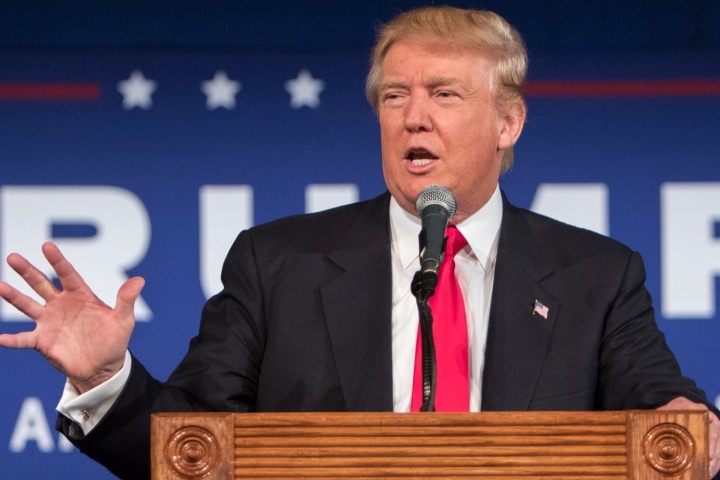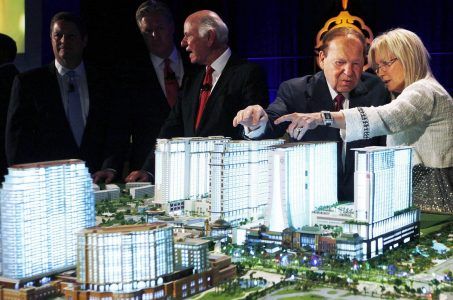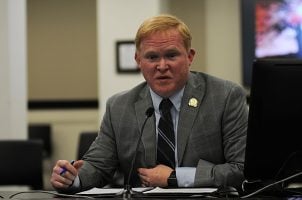First Prime Time GOP Debate Has Little Gambling Focus, Even with Trump Center Stage
Posted on: August 7, 2015, 11:56h.
Last updated on: August 7, 2015, 11:59h.

If you expected online gaming issues to get any attention at last night’s GOP debates, you were sorely disappointed.
The first major event of the 2016 presidential campaign took place in Cleveland last night, as the ten leading Republican contenders joined each other on stage for the first of many debates between the candidates. The debate, held by Fox News, featured Megyn Kelly, Brett Baier, and Chris Wallace as moderators for over two hours of talking points, attacks and banter between the top GOP contenders.
It followed an earlier “Happy Hour” debate that showcased the views of the seven trailing Republican candidates, including RAWA sponsor and South Carolina Senator Lindsey Graham.
Heading into the key prime time debate, it was business tycoon Donald Trump that held a large lead in early polling among Republican voters. That position translated into a center podium on stage and the largest share of speaking time over the course of the debate, despite efforts to even the playing field as much as possible.
Trump Remains Center of Attention from the Start
The attention on Trump started from the opening moments, when Baier asked a question seemingly designed to bring attention to discussion that Trump might run as an independent candidate if he weren’t to win the GOP nomination.
“Is there anyone on stage who is unwilling tonight to pledge your support to the eventual nominee of the Republican Party and pledge to not run an independent campaign against that person?” Baier asked.
Trump, as expected, was the only person to raise his hand. He said that he would have to respect the person that won the nomination if it weren’t him, and that he would not take any such pledge at this point in the process.
Trump had plenty of other memorable moments, including a back-and-forth with Kelly over comments he had made about women in the past. He was also the only candidate to be asked a question that touched on the subject of gambling, as he was asked about the four times his companies have declared bankruptcy, including the 2009 bankruptcy of Trump Entertainment Resorts.
“I had the good sense to leave Atlantic City, which by the way, Caesars just went bankrupt,” Trump said. “Every company, [Governor Chris Christie] can tell you, every company virtually in Atlantic City went bankrupt.
“I had the good sense, and I’ve gotten a lot of credit in the financial pages, seven years ago I left Atlantic City before it totally cratered, and I made a lot of money in Atlantic City, and I’m very proud of it.”
No Clear Winner in Prime Time Debate, Fiorina Favored in Happy Hour Forum
It is hard to say how Trump’s bravado played with GOP voters. While many informal online polls rated Trump’s performance highly, focus groups among likely primary voters found the opposite, with pollster Frank Luntz’s focus group sharing overwhelmingly negative views of him, calling him “mean” and “angry.”
So who did win the debate? There was no clear standout, so the answer depends on who you ask.
Many in the media were impressed by the performance of Ohio Governor John Kasich, who is polling rather low in national polls, but fares much better in New Hampshire, a key primary state. That same Luntz focus group appeared to like the performances of Texas Senator Ted Cruz and former Arkansas Governor Mike Huckabee, while retired neurosurgeon Ben Carson received a big bump in Google searches during and after the debate.
Meanwhile, the earlier debate for the seven candidates who did not qualify for the prime time version produced a clear winner in most minds: former Hewlitt-Packard CEO Carly Fiorina, who generally impressed with decisive yet diplomatic viewpoints. But not only did she not address gambling views, there is nothing on record about her views on these issues, either.
However, Sheldon Adelson did back Fiorina’s 2010 bid for a US Senate position in California, a bid lost to incumbent and Democrat Barbara Boxer. Perhaps Adelson’s support means that, at least behind the scenes, she had pledged her allegiance to blocking online gambling, but there is no definitive word on this that we can find.
With the next GOP debate scheduled for September 16 using the same split-field format, many analysts believe that Fiorina has the best chance to improve her polling and jump onto the varsity squad the next time around.
No Mention of RAWA or CSIG
Sharing the stage with Fiorina was Graham, and although he spoke passionately about his views on terrorism, there was nary a mention by him or interviewers about his enthusiastic support of the heavily lobbied Restoration of America’s Wire Act (RAWA), or any other gambling-related issue, for that matter, including Sheldon Adelson’s Coalition to Stop Internet Gambling.
This may indicate that, as much power as Sheldon Adelson wields backstage at the Republican party, his strong anti-online gambling views are not considered helpful in moving candidates ahead, and therefore are kept in the shadows at mainstream events. At least that’s something.
Related News Articles
Macau Gambling Still Struggling Amidst Crackdowns and Downturns
Georgia GOP Governor Hopefuls Stand United in Opposition to Gambling
Most Popular
Las Vegas Overstated F1 Race’s Vegas Impact — Report
Vegas Strip Clubs Wrestle in Court Over Animal Names
Most Commented
-
End of the Line for Las Vegas Monorail
— April 5, 2024 — 90 Comments -
Mega Millions Reportedly Mulling Substantial Ticket Price Increase
— April 16, 2024 — 6 Comments -
Nearly Abandoned Mall Outside Vegas Soon to Have Only One Tenant
— March 12, 2024 — 5 Comments -
Long Island Casino Opponents Love New York Licensing Delays
— March 27, 2024 — 5 Comments
















No comments yet